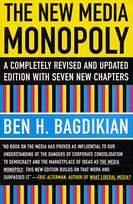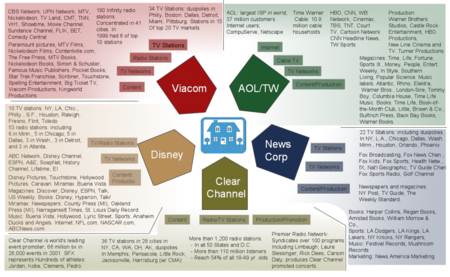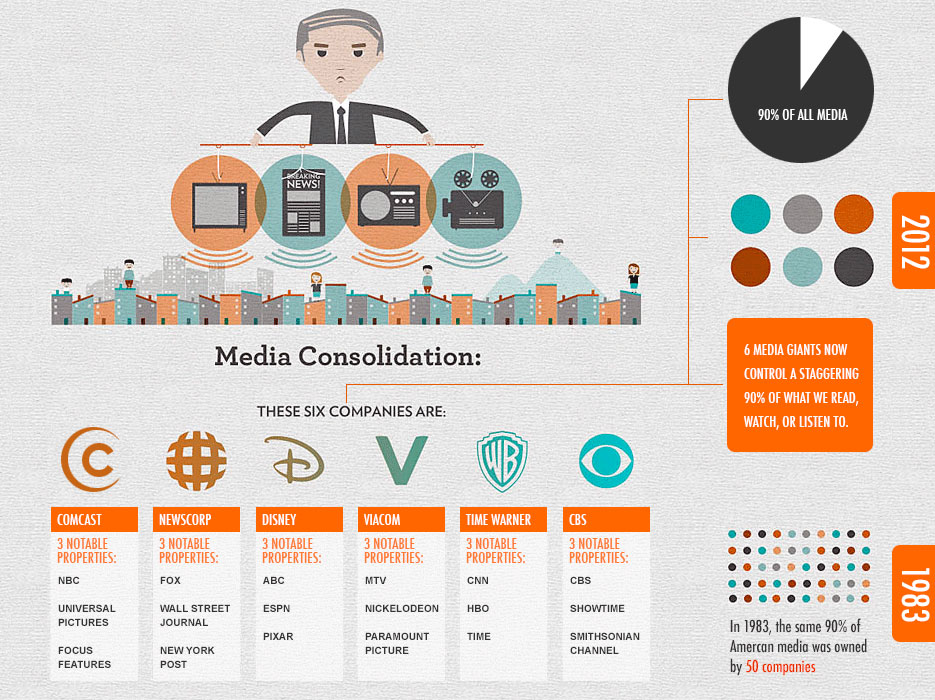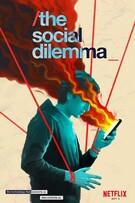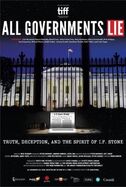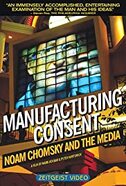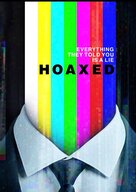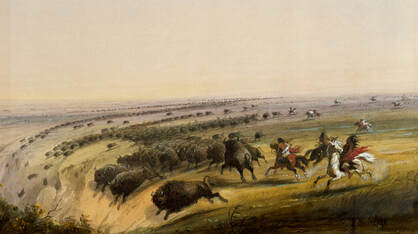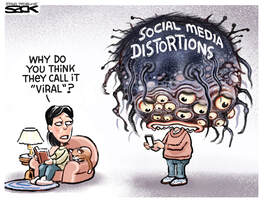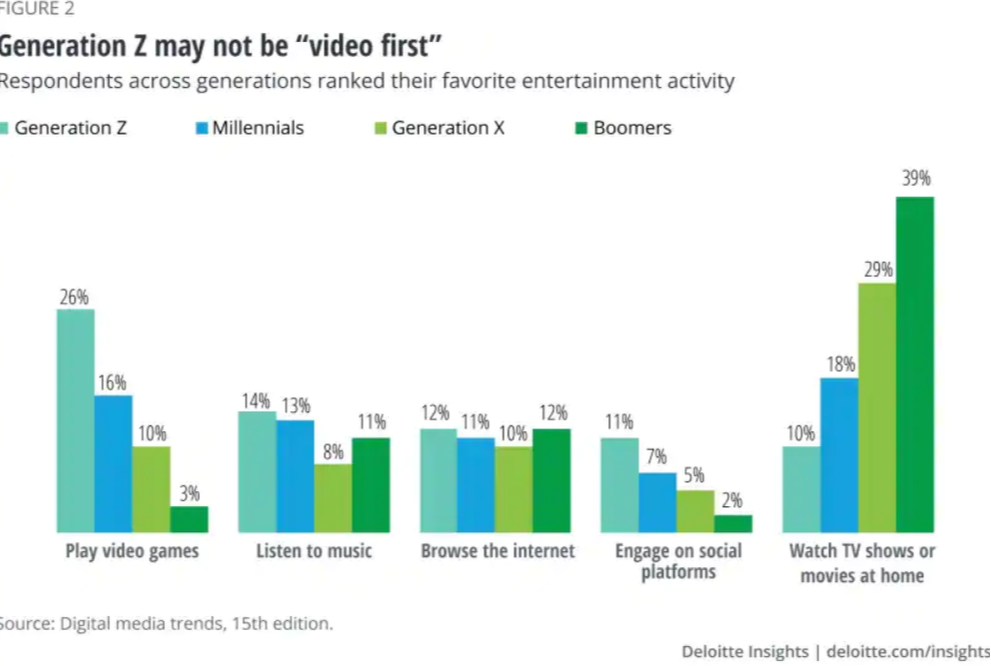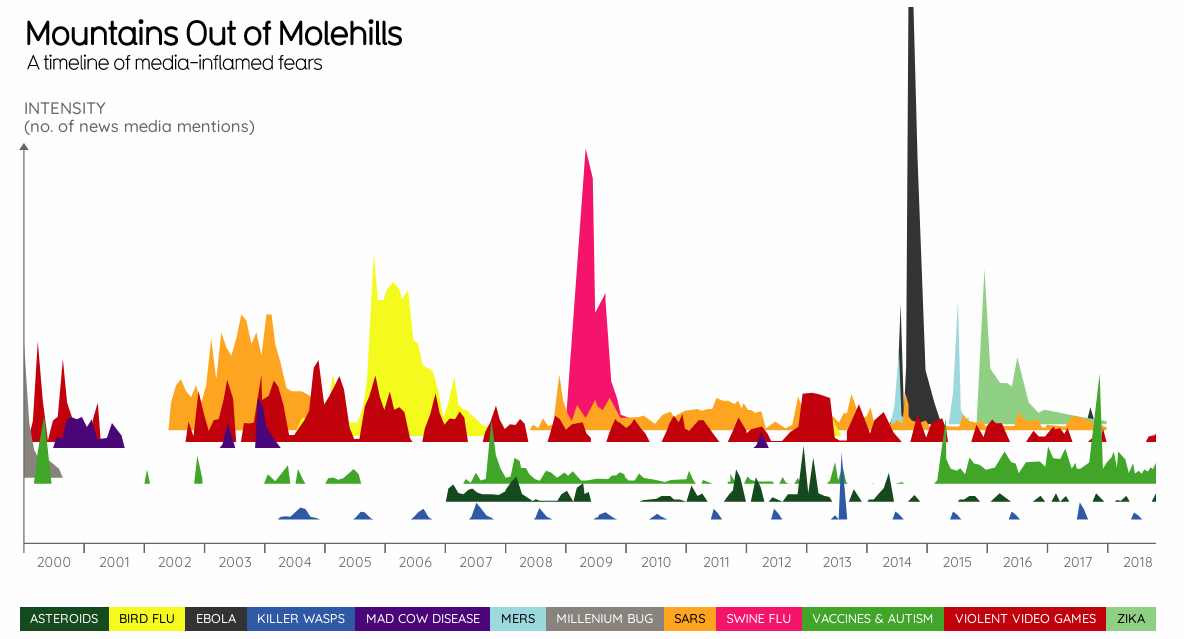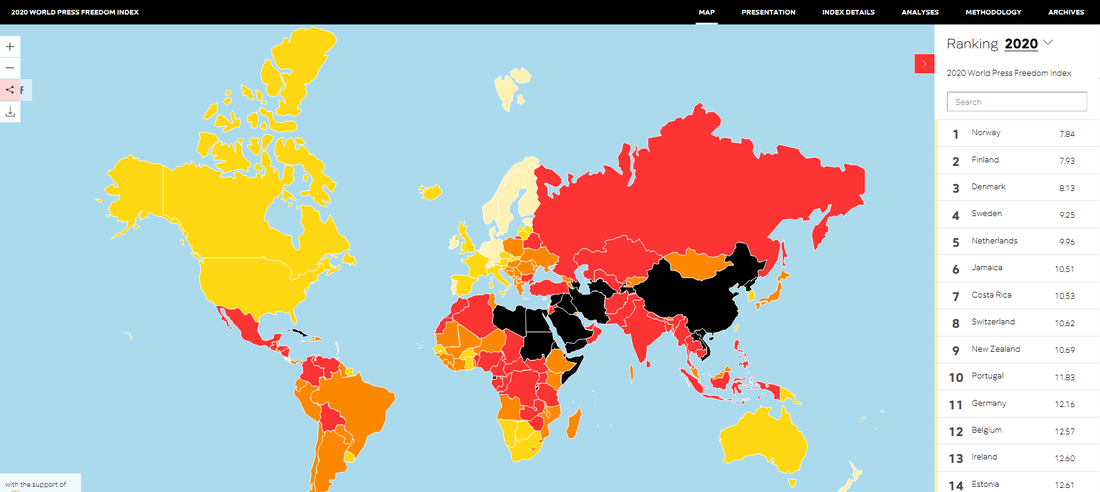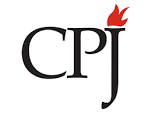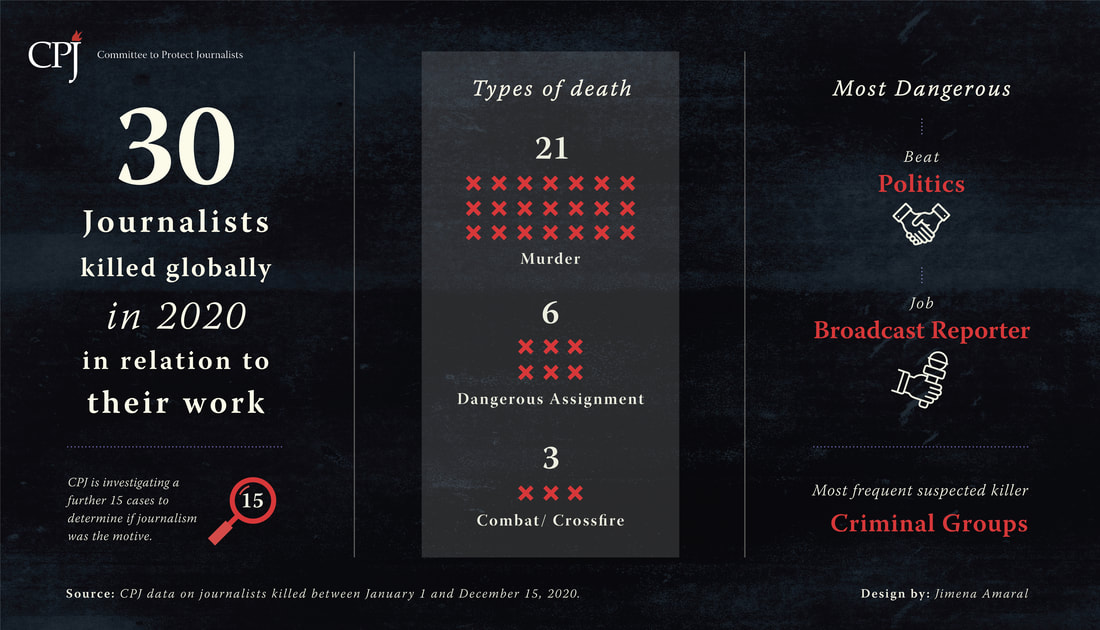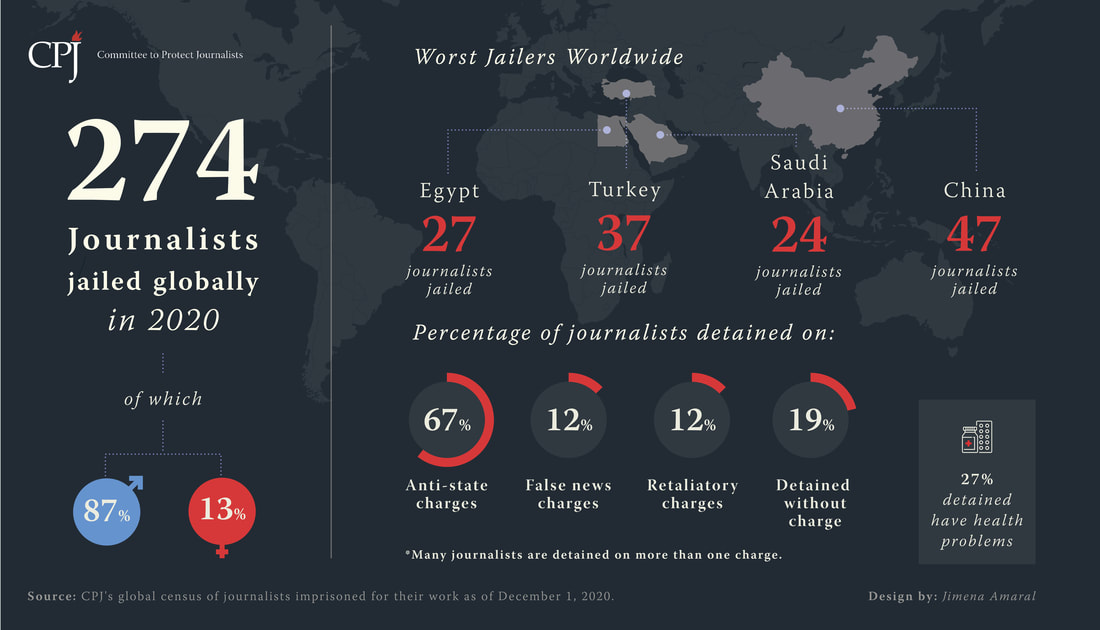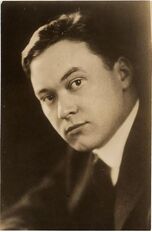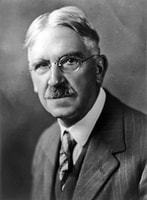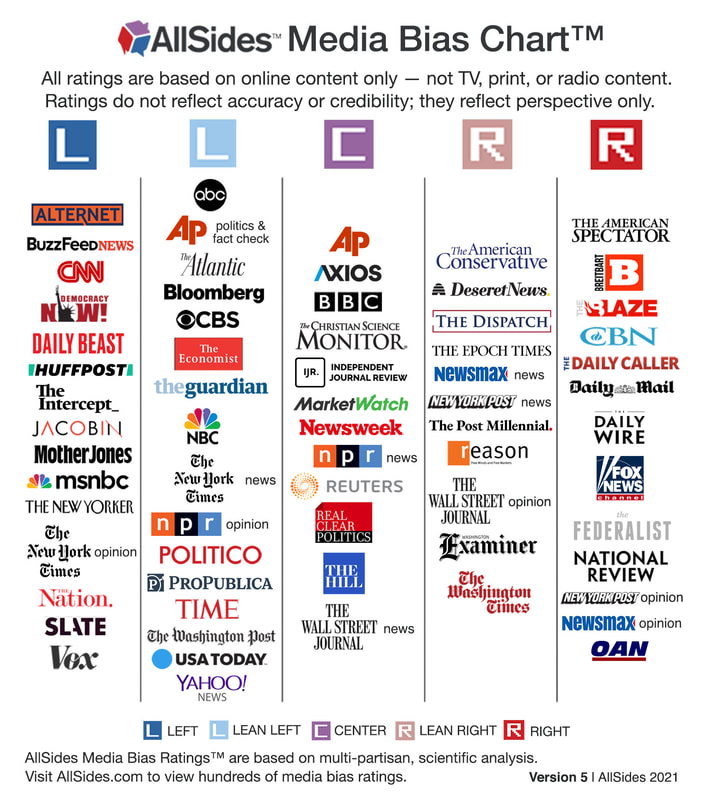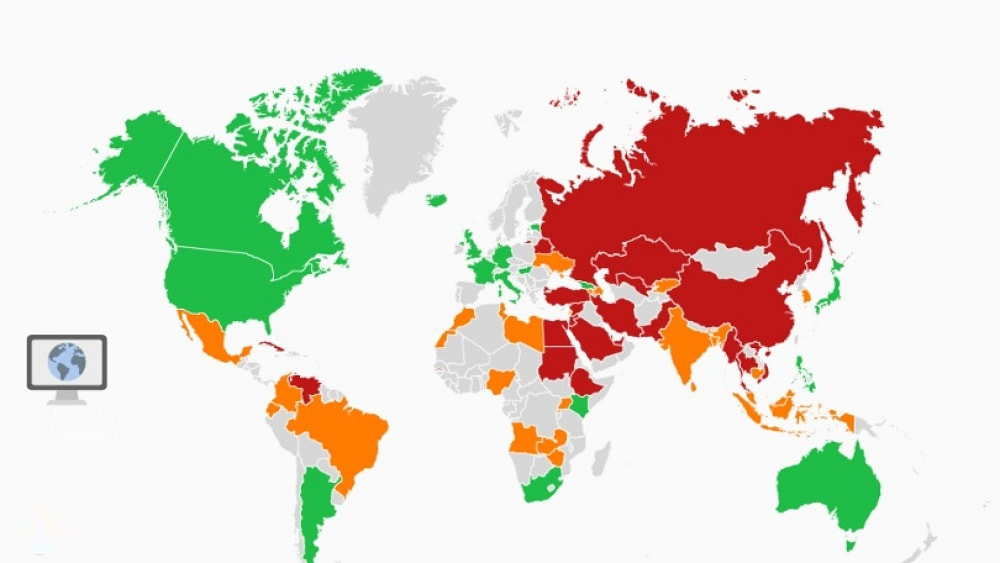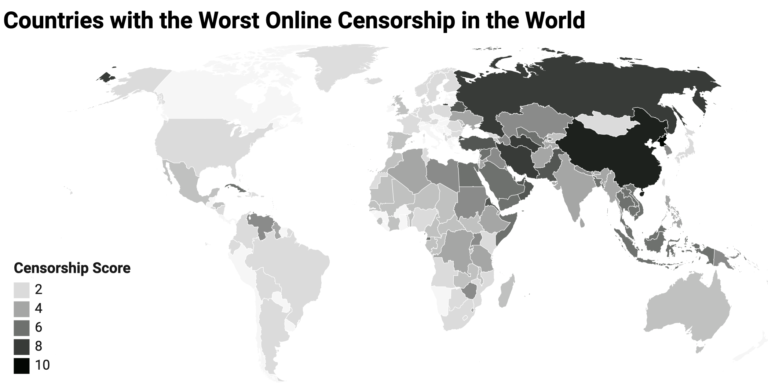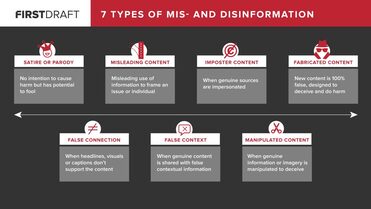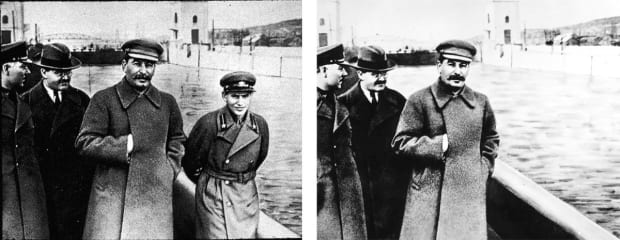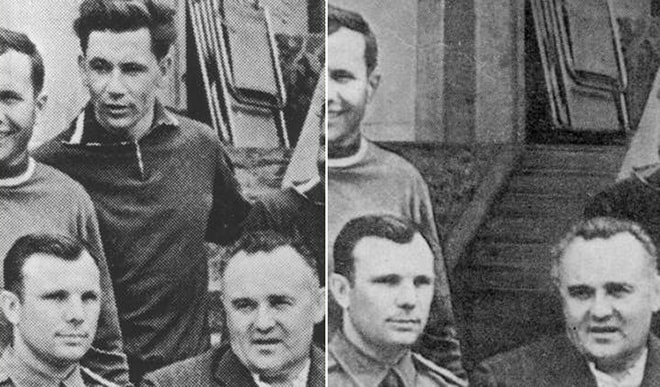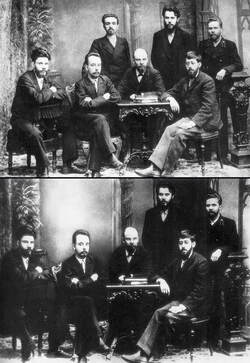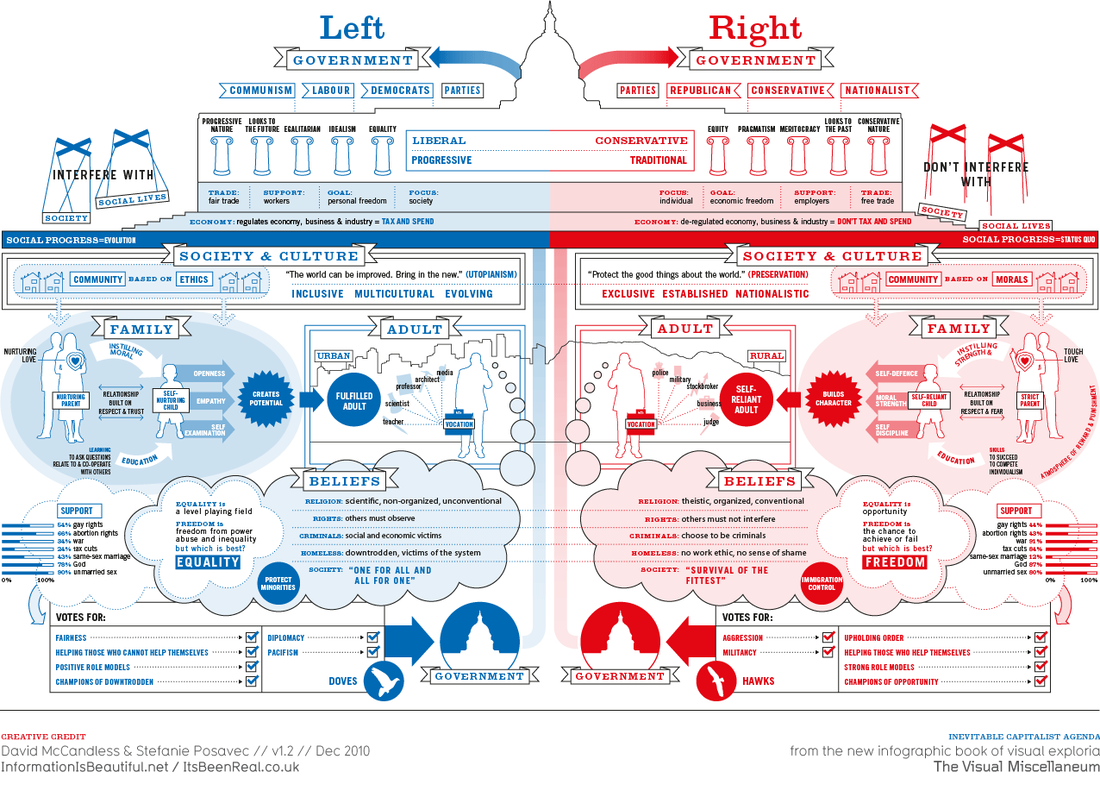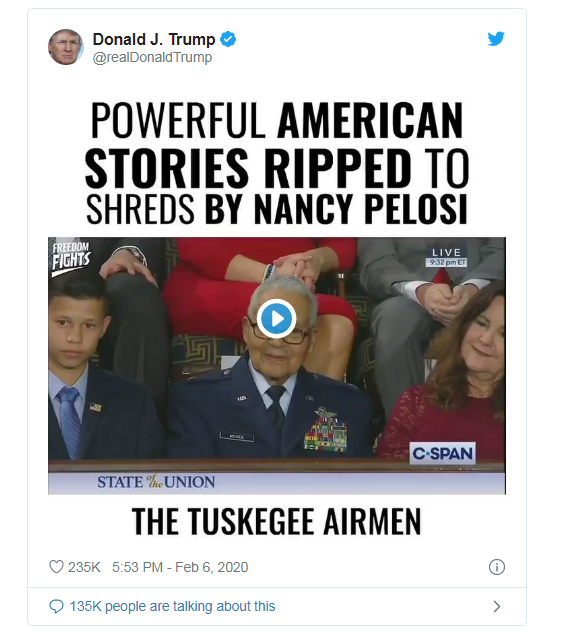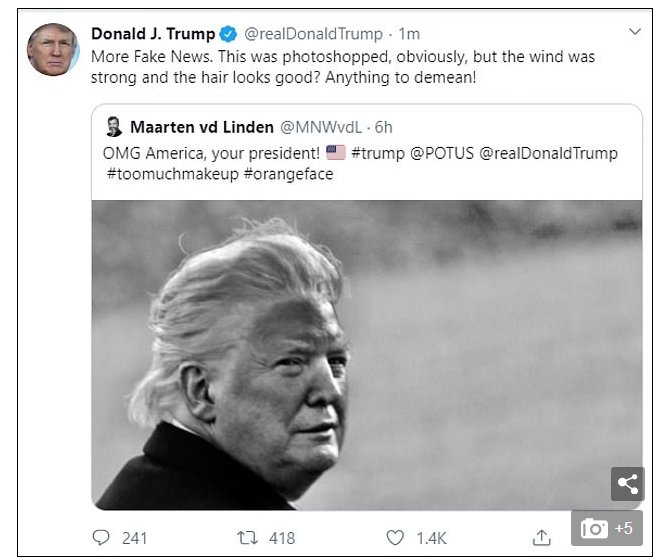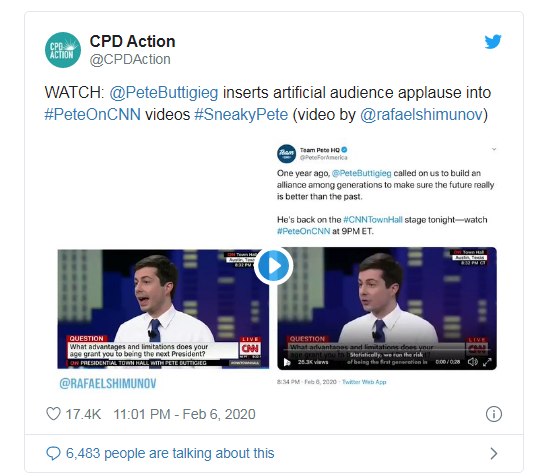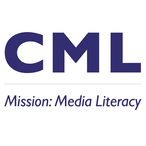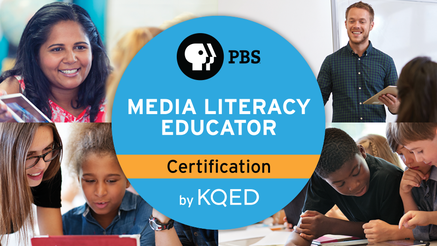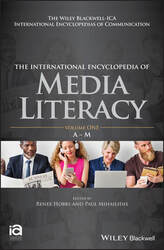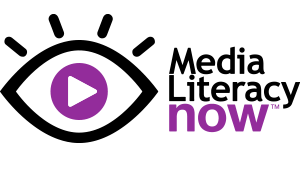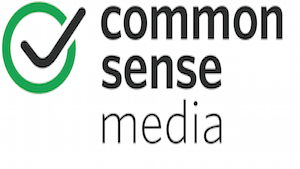Media Literacy
And Media Literacy Education
Modern Instruction Techniques & Resources
|
Message from this site:
This page aimed to compile various resources covering several media literacy topics, with the majority gathered before the tumultuous yet enlightening year of 2020. A genuine and objective study of media literacy, encompassing areas such as disinformation, misinformation, censorship, journalism, and control, should ideally incorporate the events of 2020 and current global actions. Regrettably, these events have become so contentious that their objective analysis and inclusion on this site pose challenges. Despite this limitation, the hope is that this page still offers valuable resources for the study of media literacy. -KMN |
What is 'The Media'?
“If you believe that your thoughts originate inside your brain, do you also believe that television shows are made inside your television set?”
― Warren Ellis
me·di·a
/ˈmēdēə/
noun
/ˈmēdēə/
noun
- the main means of mass communication (broadcasting, publishing, and the Internet) regarded collectively.
"their demands were publicized by the media" - plural form of medium.
Media are the communication outlets or tools used to store and deliver information or data. The term refers to components of the mass media communications industry, such as print media, publishing, the news media, photography, cinema, broadcasting, digital media, and advertising. Wikipedia
TEDxLehighU: Whoever Controls the Media, the Images, Controls the Culture | Min KimHow does Media change your perception of culture? Nowadays, because of social media the way we look at an image and receive a piece of information have changed. Min is a Lehigh student ('16, '17G) who studied Sociology and Entrepreneurship as a member of the Eckardt Scholars Program. His senior thesis—as presented at the 2015 Eastern Sociological Society Conference in NYC—explores the effects of representations of race in pop culture through the lens of the hip-hop and basketball industries. Min will be working at Red Bull in Santa Monica, CA starting mid-July, where he will be envisioning and executing brand campaigns around music and culture. Min graduated from Lehigh in 2016 with departmental and university honors, and is now pursuing a number of self-directed projects at the intersection of media, business, and culture through the Presidential Scholarship. Min is also known for his passion for music and DJing, and performs regularly under his the alias 'minnit'. This talk was given at a TEDx event using the TED conference format but independently organized by a local community. Learn more at https://www.ted.com/tedx
|
The Sleeper Effect – How the Media Manipulates YouThe sleeper effect is a manipulation technique that is commonly employed by the mainstream media, whether its for politics, advertisements, or whatever. Learn more here:
Bread dance/Chaplin-1992,Charles Chaplin meets J.Edgar HooverIn this scene of the film Chaplin (1992) by, Sir Richard Attenborough based upon Charles Chaplin's Autobiography you can see the meeting of socialist/artist Chaplin and J.Edgar Hoover's idea of radicalization of USA.
|
The Modern Media:
A monopoly?
"...with the concentration of economic and political power and the integration of opposites in a society which uses technology as an instrument of domination, effective dissent is blocked where it could freely emerge; in the formation of opinion, in information and communication, in speech and assembly. Under the rule of monopolistic media–themselves the mere instruments of economic and political power–a mentality is created for which right and wrong, true and false are predefined wherever they affect the vital interests of the society.“
― Herbert Marcuse: Power of Repressive Tolerance
|
The New Media Monopoly
by Ben H. Bagdikian When the first edition of The Media Monopoly was published in 1983, critics called Ben Bagdikian's warnings about the chilling effects of corporate ownership and mass advertising on the nation's news "alarmist." Since then, the number of corporations controlling most of America's daily newspapers, magazines, radio and television stations, book publishers, and movie companies has dwindled from fifty to ten to five. |
Media Monopolies
|
Media Monopolies - wikis.evergreen.edu
|
Contents
Description of the pattern Media outlets that are controlled by a small number of corporations often broadcast propaganda that aligns with the interests of those corporations. Information that challenges or opposes those interests is rarely given through mainstream media sources. How It WorksA large company, or corporation, such as... |
Is There an American Media Monopoly?
|
Media distribution and topics are widely argued against and discussed among American culture today. Media outlets exist and appear as any medium that controls the distribution of information. Mass media has never been more consolidated and now six giant conglomerates control a staggering 90% of what media consumers read, watch, and listen to. As a result, many popular media entities have been consolidated and all work under the same umbrella corporation.
Media consolidation, also known as media convergence, is the concentration of media ownership by only a few companies or individuals. Like any other business, the purpose of the media is to... |
Who Owns The Media?
Capitalism And Monopolies: How Five Companies Control All US Media
|
Media Documentaries:
The Media and Herd Mentality
“Collective fear stimulates herd instinct, and tends to produce ferocity toward those who are not regarded as members of the herd.”
― Bertrand Russell
|
Buffalo Jump
A buffalo jump, or sometimes bison jump, is a cliff formation which Native Americans historically used to hunt and kill plains bison in mass quantities. The broader term game jump refers to a man-made jump or cliff used for hunting other game, such as reindeer.
|
Science Daily - Herd mentality: Are we programmed to make bad decisions?December 16, 2014
University of Exeter Summary: A natural desire to be part of the 'in crowd' could damage our ability to make the right decisions, a new study has shown. Research has shown that individuals have evolved to be overly influenced by their neighbors, rather than rely on their own instinct. As a result, groups become less responsive to changes in their natural environment. Herd Mentality | Definition of Herd Mentality by Oxford ... - Lexico
The tendency for people's behavior or beliefs to conform to those of the group to which they belong. 'the herd mentality of the investment community'. Herd mentality - Wikipedia
Herd mentality, mob mentality and pack mentality, also lesser known as gang mentality, describes how people can be influenced by their peers to adopt certain ... Social Media And The Mob Mentality: How We Can Fight It -forbes.com
When members of the group don't want to dissent for fear of rejection, the mob mentality will prevail. Even if people see social media bullying ... |
Media Literacy Definitions:
"Media Culture is the result of the industrialization of information and culture. Images, sounds and spectacles help produce the fabric of life, dominating leisure time, shaping political views and social behavior, and providing the materials out of which people forge their identities."
― Doug Kellner
Media literacy encompasses the practices that allow people to access, critically evaluate, and create or manipulate media. Media literacy is not restricted to one medium. Wikipedia
|
Media Literacy: A Definition and More
The definition most often cited in the US is a succinct sentence hammered out by participants at the 1992 Aspen Media Literacy Leadership Institute: Media Literacy is the ability to access, analyze, evaluate and create media in a variety of forms. Definitions, however, evolve over time and a more robust definition is now needed to situate media literacy in the context of its importance for the education of students in a 21st century media culture. CML now uses this expanded definition: Media Literacy is a 21st century approach to education. It provides a framework to... https://www.medialit.org/media-literacy-definition-and-more Media literacy encompasses the practices that allow people to access, critically evaluate, and create or manipulate media. Media literacy is not restricted to one medium. Wikipedia
The Basic Definition
Media literacy is the ability to ACCESS, ANALYZE, EVALUATE, CREATE, and ACT using all forms of communication. In its simplest terms, media literacy builds upon the foundation of traditional literacy and offers new forms of reading and writing. Media literacy empowers people to be critical thinkers and makers, effective communicators and active citizens. https://namle.net/publications/media-literacy-definitions/ What is media literacy, and why is it important?
The word "literacy" usually describes the ability to read and write. Reading literacy and media literacy have a lot in common. Reading starts with recognizing letters. Pretty soon, readers can identify words -- and, most importantly, understand what those words mean. Readers then become writers. With more experience, readers and writers develop strong literacy skills. (Learn specifically about news literacy.) Media literacy is the ability to identify different types of media and understand the messages they're sending. Kids take in a huge amount of... https://www.commonsensemedia.org/news-and-media-literacy/what-is-media-literacy-and-why-is-it-important What is the MLN definition of Media Literacy?
Media Literacy is the ability to:
iRT (Internet Research & Training)
Media Literacy is defined as the ability to access, analyze, evaluate, and produce communication in a variety of forms – or – Media Literacy is the ability to ask questions about what a person watches, sees and reads. Media Literacy education programs can teach students to:
Digital Citizenship and Media Literacy ActS.2240 - Digital Citizenship and Media Literacy Act
116th Congress (2019-2020) | Sen. Klobuchar, Amy [D-MN] (Introduced 07/23/2019) (4) MEDIA LITERACY.—The term “media literacy” means the ability to-- (A) access relevant and accurate information through media in a variety of forms; (B) critically analyze media content and the influences of different forms of media; (C) evaluate the comprehensiveness, relevance, credibility, authority, and accuracy of information; (D) make educated decisions based on information obtained from media and digital sources; (E) operate various forms of technology and digital tools; and (F) reflect on how the use of media and technology may affect private and public life. |
Video: Media Literacy Now - What is Media Literacy?Intended as a tool for advocates, the video introduces the concept of media literacy as a key that unlocks meaning behind the messages that we see, and allows us to be more thoughtful and deliberate as we create our own messages – such as those we create and share on social media.
Media Literacy Now Video: SXSW EDU Keynote - Danah Boyd | What Hath We Wrought?What Hath We Wrought?, takes a powerful look at media literacy, the widespread consumption of fake news and the cultural implications of media manipulation.
Teachers College, Columbia University - Panel Discussion: Media LiteracyA timely conversation on the opportunities and challenges facing media literacy today, we discuss different perspectives and approaches to media literacy education with Academic Festival panelists Lalitha Vasudevan, Professor of Technology & Education and Director of the Media and Social Change Lab at Teachers College; Ioana Literat, Assistant Professor of Communication, Media and Learning Technologies Design; Yoo Kyung Chang, Lecturer, Communication, Media and Learning Technologies Design; Emily Bailin Wells (Ed.D. ‘18), Adjunct Assistant Professor, Communication, Media and Learning Technologies Design; Michelle Ciulla-Lipkin, Executive Director of the National Association for Media Literacy Education; and Jessica Wolff, Director of Policy and Research at the Center for Educational Equity.
Video: Introduction to Media Literacy: Crash Course Media Literacy #1First thing’s first: what is media literacy? In our first episode, Jay breaks this question down and explains how we’re going to use it to explore our media saturated world.
|
Media Literacy in Education
"Media literacy is not just important, it's absolutely critical. It's going to make the difference between whether kids are a tool of the mass media or whether the mass media is a tool for kids to use."
― Linda Ellerbee
The Core Principles of Media Literacy EducationThe Core Principles of Media Literacy Education
Common Sense Media - What is Media Literacy and How Should We Teach it?
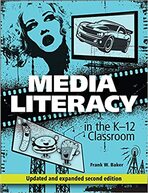
Media Literacy in the K-12 Classroom
by Frank W. Baker Today's average youth spends over 10 hours a day consuming media. Aided by technology, young people can instantly share and engage with media messages to find answers, get directions, shop or connect with friends. But access alone doesn't lead to critical thinking. Media are texts, designed to be read, analyzed, deconstructed and reconstructed. Understanding how to interpret advertising messages, check for bias or avoid stereotyping are among the skills students need to become knowledgeable consumers and producers of media. This book helps educators understand the importance of teaching media literacy and gives them the tools needed to bring this form of literacy into the classroom. 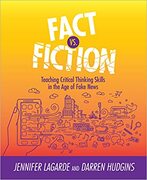
Fact Vs. Fiction: Teaching Critical Thinking Skills in the Age of Fake News
by Jennifer LaGarde, Darren Hudgins Help students discern fact from fiction in the information they access not only at school but in the devices they carry in their pockets and backpacks. The advent of the 24-hour news cycle, citizen journalism and an increased reliance on social media as a trusted news source have had a profound effect not only on how we get our news, but also on how we evaluate sources of information, share that information and interact with others in online communities. When these issues are coupled with the “fake news” industry that intentionally spreads false stories designed to go viral, educators are left facing a new and challenging landscape. This book will help them address these new realities, providing strategies and support to help students develop the skills needed to effectively evaluate information they encounter online. Reading: PDFHobbs, Renee and Jensen, Amy (2009) "The Past, Present, and Future of Media Literacy Education," Journal of Media Literacy Education, 1(1).
Available at: https://digitalcommons.uri.edu/jmle/vol1/iss1/1 |
Media Literacy Education in 2020 & BeyondAlgorithmic personalization shapes and limits our experience of contemporary life and learning New forms of media literacy education are needed to respond to the changing digital environment University-school partnerships can build local capacity for digital & media literacy education by bridging theory & practice. Professor Renee Hobbs gave this keynote address to the New York State Communication Association, October 19, 2019. Learn more: www.bit.ly/hobbsnysca2019
ABC Education: Michelle Lipkin on media literacy in schoolsMichelle Lipkin discusses the importance of teaching media literacy in schools. More videos and resources to help you get news literate: https://www.abc.net.au/education/medi...
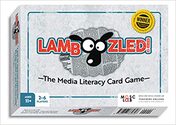
LAMBOOZLED!: The Media Literacy Card Game Cards
by Ioana Literat, Yoo Kyung Chang, Columbia University Media and Social Change Lab, Teachers College Best Empirical Research at the American Educational Research Association (AERA) Annual Conference 2019, in the Media, Culture & Learning Special Interest Group (MCL SIG)Responding to current issues surrounding news credibility, this award-winning card game will help young people (11+) sharpen their critical media literacy skills while avoiding partisan politics. Grounded in current research on news literacy and learning sciences, this card game for 2–6 players introduces―in a fun and engaging way―valuable strategies that teens can use to spot misinformation. The game is set in the fictional sheep town of Green Meadows, where some news stories attempt to pull the wool over your eyes. Players must help the sheep citizens of Green Meadows figure out what’s true and what’s not by using their evidence to win over the herd. For more information, including a video tutorial on how to play, visit www.lamboozled.com. |
Media Literacy Resource:
Checkology
Media Through History
“Whoever controls the media, controls the mind”
― Jim Morrison
Early Communication, Information Control, Revolution, 20th century, Devices (Smart Phones), Social Media, Influencers, The Future Cybersafety and Digital Citizenship UNCRC - The United Nations Convention on the Rights of the Child FCC’s: CIPA – Children’s Internet Protection Act (2000)
A brief history of media panics | BBC Ideas
Are you worried you're addicted to your phone and social media? Believe it or not, there was a time when people worried about the addictiveness of novels, comic books, the radio and landlines. Brendan Miller explores "media panics" - the history of panics of new forms of media.
CNBC: History Of Social Media In 90 secondsFrom Friendster to Snapchat, take a look back at social media's major moments — all in 90 seconds.
Noam Chomsky: The youth and the mass media's false reality and historyInterview with Noam Chomsky on May 22, 2012, at M.I.T. Cambridge, MA conducted by Chris Steele (Filmed/Edited by Dan Banta and Trenton Cotten, translated by Christina Castaneda).
Sack cartoon: Your brain on social media | Star TribuneVideo: Common Sense Education: E-rate and CIPA: Toolkit For TeachersTeach students to be safe, smart, responsible digital citizens and help your school keep valuable E-Rate federal support for technology at the same time. Get started by watching the overview tutorial, then access engaging lessons in Common Sense Education's E-Rate Toolkit complete with lesson plans, handouts, videos, assessments, and parent tip sheets.
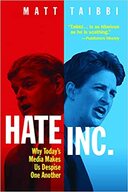
Hate Inc.: Why Today’s Media Makes Us Despise One Another
by Matt Taibbi Part tirade, part confessional from the celebrated Rolling Stone journalist, Hate Inc. reveals that what most people think of as "the news" is, in fact, a twisted wing of the entertainment business In this characteristically turbocharged new book, celebrated Rolling Stone journalist Matt Taibbi provides an insider's guide to the variety of ways today's mainstream media tells us lies. Part tirade, part confessional, it reveals that what most people think of as "the news" is, in fact, a twisted wing of the entertainment business. In the Internet age, the press have mastered the art of monetizing anger, paranoia, and distrust. Taibbi, who has spent much of his career covering elections in which this kind of manipulative activity is most egregious, provides a rich taxonomic survey of American political journalism's dirty tricks. Heading into a 2020 election season that promises to be a Great Giza Pyramid Complex of invective and digital ugliness, Hate Inc. will be an invaluable antidote to the hidden poisons dished up by those we rely on to tell us what is happening in the world. Matt Taibbi: Hate Inc., Why Today's Media Makes Us Despise One Another
Journalist and author Matt Taibbi presented a lecture on his book "Hate Inc.: Why Today's Media Makes Us Despise One Another." This event was co-sponsored by Penn State's McCourtney Institute for Democracy and Donald P. Bellisario College of Communications. The lecture is followed by an audience Q&A moderated by McCourtney Institute communications specialist Jenna Spinelle. Matt Taibi on Substack: https://taibbi.substack.com
Media ConsumptionAcross different entertainment types and generations, how much people tolerate ads and where they are willing to pay to avoid them varied widely ...
Unlike with smartphones and social media, tablet ownership is now comparable across most generations. Today, 55% of Gen Xers, 53% of Millennials ..
Both groups have fully embraced digital media – albeit in slightly different ways, with Gen Y carrying a certain nostalgia for the physicality ...
Missing: figure 6 |
History of Media Literacy, part 1: Crash Course Media Literacy #2n order to understand the history of media literacy we have to go all the way back to straight up literacy. In the first half of our look at the history of media literacy, Jay takes us all the way back to Ancient Greece and forward through the printing press, newspapers, and Yellow Journalism. *** Resources & References: The Impact of the Printing Press http://courses.educ.ubc.ca/etec540/Se... Grandparents of Media Literacy https://www.grandparentsofmedialitera... Maine Explosion Caused by Bomb or Torpedo? https://digitalcollections.nypl.org/i...
History of Media Lit, part 2: Crash Course Media Literacy #3Jay continues our journey through the history of media literacy with the arrival of movies, television, and the other screens that now permeate our lives – along with some of the different approaches to media literacy that these inventions brought with them.
Media & the Mind: Crash Course Media Literacy #4You are constantly surrounded by media, so the question is: how does your brain handle all of that? The unfortunate answer is that our brains have a lot of processes that not super helpful for media literacy, but hopefully with a little self-awareness, we can work around that.
Media History Timeline. (compiled by Prof. Jim McPherson, Whitworth College, 2002). 4000 B.C. – Sumerian stamp seals. 3100 B.C. – Sumerian “writing” system ...
Arclight. Turn your Lantern searches into graphs and discover trends in media history. Take me there. Recently Digitized, Highly Recommended.
Introduction. Media history considers the historical dimension of communicating information, knowledge, and values to a broad audience. Although the term 'media ...
Media History Links. Following are links to other organizations and publications of interest to the media historian. To suggest a link that should be included on ...
Media History Research Centre is an interdisciplinary research centre engaging with the historical development of media change and communication.
Common themes of those works were the media policies of the postcolonial state and the charge of cultural imperialism. Genuinely historical ...
10YB10D ** The Rise of Satoshi ** 10 Years of Bitcoin History for 10 Days. Vernissage: 9. Sept, Exhibition: 10. - 19. Sept.
Start studying Media History. ... Industrialized mass media - from 1850: mass press & periodicals 4. ... Media history as transitions in society and culture. 1.
The Washington Post's media-spread error about Trump's Georgia call shows the deceitful playbook first invented to undermine Trump and promote Russiagate.
Glenn Greenwald Media Trust
The declining public trust in the news media and polarization of news audiences have profound effects on civic life. Jan 5, 2022 · Uploaded by Pew Research Center
Partisans' trust in the media continues to be sharply polarized. Currently, 68% of Democrats, 11% of Republicans and 31% of independents say ...
Jan 5, 2022 — There are countless efforts to increase trust in news. Few have reached beyond existing readers and likely subscribers to the truly skeptical.
Jun 24, 2021 — Just 29% of people surveyed in the U.S. said they trust the news, compared to 45% in Canada and 54% in Brazil.
Instructional Project - Reflection: Your Most Trusted Media Source and Why?Reading: PDF
Bulger, Monica and Davison, Patrick (2018) "The Promises, Challenges, and Futures of Media Literacy," Journal of Media Literacy Education, 10(1), 1 -21.
DOI: https://doi.org/10.23860/JMLE-2018-10-1-1 Available at: https://digitalcommons.uri.edu/jmle/vol10/iss1/1 |
Elements of Media
Journalism, Advertisement, Public Relations, Propaganda, Censorship and Fake News
Journalism
“Journalism is printing what someone else does not want printed.
Everything else is public relations.”
― George Orwell????
Everything else is public relations.”
― George Orwell????
Journalism is the production and distribution of reports on events. The word journalism applies to the occupation, as well as citizen journalists who gather and publish information. Journalistic media include print, television, radio, Internet, and, in the past, newsreels. Wikipedia
- might NOT be an Orwell quote - UMass Boston Blog Network Sep 25, 2012 — “Journalism is printing what someone else does not want printed; everything else is public relations.” The trouble is that it's not all that clear that ...
- Journalism is printing what someone else does not want printed. May 28, 2019 — “Journalism is printing what someone else does not want printed. ... Everything else is public relations. ... Randolph Hearst and Lord Northcliff (a.k.a. Alfred Harmsworth, the British publishing magnate of the early 20th century).
|
University of Kansas, School of Journalism & Mass Communications: History of American Journalism
Video: UMaine - Journalism is the first rough draft of historyMichael Socolow, associate professor of communication and journalism, searches for lessons of history as he contemplates constantly evolving media.
What Is Journalism and Why Does it Matter?NewsWise is a news literacy program to provide school-aged Canadians an understanding of the role of journalism in a healthy democracy and the tools to find and filter information online. Visit http://newswise.ca/ for more information and resources. NewsWise is the product of a partnership between CIVIX and the Canadian Journalism Foundation, with the support of the Google.org Charitable Giving Fund of Tides Foundation.
The 5 Core Values of JournalismThe EJN Director describes the five values which are the foundation of ethical journalism.
How Journalism Was Corrupted by the Power of Privilege | Gay TaleseThe role of explanatory journalism in America’s democracyJournalists discuss the ways in which the free press helps improve public knowledge and strengthen American democracy. http://www.brookings.edu/journalism
CWRU: Journalism and Media Lecture Series: Howard Schneider Lecture on News LiteracySeries: Journalism and Media Lecture Series
Title: Howard Schneider Lecture on News Literacy Date: March 3, 2010 Location: The Garden Room at the Cleveland Botanical Garden Description Howard Schneider former Pulitzer-Prize winning editor of Newsday and dean of the School of Journalism at Stony Brook University. In the News:Yahoo News - Glittering symbol of press, Newseum set to close its doorsThe Hollywood Reporter - Ronan Farrow, HBO Team for Doc About Threats Against Journalists |
JournalismDegree.orgJournalism Degree.org is a site dedicated to providing timely and relevant information about journalism degrees and programs. We help current and prospective students find the right program to fit their needs. With useful articles and links to accredited institutions, our site provides a single location for students interested in pursuing careers in media and mass communications.
Smart Media - Media Literacy for the 21st Century: We Are All Journalists NowWhy Journalism is the Subject of the FutureCheck out the article here: http://www.spencerauthor.com/journalism/
The Impact of Twitter on Journalism | Off Book | PBS Digital Studios
Viewers like you help make PBS (Thank you 😃) . Support your local PBS Member Station here: http://to.pbs.org/Donateoffbook The world of journalism has changed in the internet era. Newsrooms are significantly smaller now than they were 10 years ago, and news is no longer a once-a-day product, but instead a constant flow of information. The rise of Twitter brought concerns within the industry - would this overwhelming source of direct raw information put professional reporters out of business? Journalists are now faced with the challenge of adapting their roles in this digital era, finding new ways to add value to content, and helping to ensure that the internet is changing our worldview for the better.
Citizen JournalistsStossel: The Rise Of Citizen JournalistsHow The 21st Century Changed Journalism
Citizen Journalism | Kester Oshioreame | TEDxPortHarcourt
What are the benefits of having independent reporters in a society? With citizens able to become journalists in their own little corners, this can be further looked into. In this insightful talk, Kester points out the arguments that can be made for citizen journalism, the laws and ethics surrounding it and the etiquettes of social media usage. Kester Oshioreame, fondly called Don Kester, has made his name in the creative arts, social media and communications. He studied theatre arts at the University of Port Harcourt, and his vast experience in stage performances, dramas and the arts have seen him feature as script writer and actor in the MNet comedy series "Do Good"; artistic director for Hilda Dokubo's "Asawana" thriller; and author of four published books, including the 2011 classic "Talk to Yourself". Don Kester is currently working as associate producer for Yibo Koko's "Three Tramps and the Law" billed for release in 2018. In his spare time, the Don works hard putting finishing touches to his many unpublished works. This talk was given at a TEDx event using the TED conference format but independently organized by a local community. Learn more at https://www.ted.com/tedx
|
Info-graphic - Information is Beautiful, Mountains out of Molehills
What are the world’s biggest fears? How much have they been amplified by the media? Is fear increasing?
Our popular “Mountains out of Molehills” image from 2007 updated and made interactive. Roll over categories to reveal media scares & accompanying headlines. Scale to the ebola spike or number of deaths by hitting the switches.
Our popular “Mountains out of Molehills” image from 2007 updated and made interactive. Roll over categories to reveal media scares & accompanying headlines. Scale to the ebola spike or number of deaths by hitting the switches.
Reporters Without Borders (RSF)
|
Based in Paris, Reporters Without Borders (RSF) is an independent NGO with consultative status with the United Nations, UNESCO, the Council of Europe and the International Organization of the Francophonie (OIF). Its foreign sections, its bureaux in ten cities, including Brussels, Washington, Berlin, Tunis, Rio de Janeiro, and Stockholm, and its network of correspondents in 130 countries give RSF the ability to mobilize support, challenge governments and wield influence both on the ground and in the ministries and precincts where media and Internet standards and legislation are drafted.
Presentation: Reporters Without Borders (RSF), for freedom of information
|
The Uncensored Library – The FilmReporters Without Borders (RSF) opens “The Uncensored Library” – Within a computer game. In many countries, free information is hard to access. Blogs, newspapers and websites are censored but Minecraft is still accessible. RSF used this backdoor to build “The Uncensored Library". A library
|
The World Press Freedom IndexWhat is it?
Published every year since 2002 by Reporters Without Borders (RSF), the World Press Freedom Index is an important advocacy tool based on the principle of emulation between states. Because it is well known, its influence over governments is growing. Many heads of state and government fear its annual publication. The Index is a point of reference that is quoted by media throughout the world and is used by diplomats and international entities such as the United Nations and the World Bank. |
Committee to Protect Journalists
|
The Committee to Protect Journalists is an independent, nonprofit organization that promotes press freedom worldwide. We defend the right of journalists to report the news safely and without fear of reprisal.
Every year, hundreds of journalists are attacked, imprisoned, or killed. For more than 30 years, CPJ has been there to defend them and fight for press freedom. |
Killings of Journalists
The Number of Journalists Jailed GloballyData |
CPJ: 30th Anniversary Documentary
10 Most Censored Countries
Special Report: Journalism & the Internet in Cuba
|
The Lippmann and Dewey Debate
1922 Walter Lippmann and John Dewey debate the role of citizens in democracy
In 1922, Walter Lippmann published an influential book entitled Public Opinion. In this book, Lippmann was very suspicious and critical of any model of democracy that placed excessive faith and power in the hands of the public. For instance, he argued that participatory democracy was unworkable and that the democratic public was a myth, and hence concluded that governance should be delegated exclusively to political representatives and their expert advisors. Based on empirical evidence about the efficacy of political propaganda and mass advertisement to shape people's ways of thinking, Lippmann contended that public opinion was highly shaped by leaders. Lippmann called this process of manipulation of consciousness 'the manufacture of consent', a concept that Noam Chomsky would popularize many years later in his writings. Lippmann argued, first in 'Public Opinion' and later in 'The Phantom Public', that since ordinary citizens had no sense of objective reality, and since their ideas are merely stereotypes manipulated at will by people at the top, deliberative democracy was an unworkable dogma or impossible dream. In his view, the most feasible alternative to such democracy consisted of a technocracy in which government leaders are guided by ...
Walter Lippmann
|
Walter Lippmann was an American writer, reporter, and political commentator famous for being among the first to introduce the concept of Cold War, coining the term “stereotype” in the modern psychological meaning, and critiquing media...
Walter Lippmann: book Public Opinion as "the founding book of modern journalism" and also "the founding book in American media studies".
Walter Lippmann, Public Opinion & WW1 PropagandaI look at Walter Lippmann's 1922 book Public Opinion. WW1 changed everything about how people viewed the world, and saw the birth of propaganda, press offices, and public relations. Lippmann sought to analyze this new world, arguing that public opinion was actually based on a highly selective psuedo-environment with an emphasis on simple stereotypes. Lippman was one of the most influential journalists of his generation winning 2 Pulitzer Prizes and lamenting the poverty of public information and the press. He also wrote the influential 'The Phantom Public.' I also include a reading of Wilfred Owen's Dulce et Decorum Est
|
John Dewey
|
My Philosopher: John Dewey
John Dewey (1859-1952) was a major leader in the American school of philosophical thought known as pragmatism. Dewey, born in Burlington, Vermont, attended the University of Vermont. It was in college that Dewey established his interest in philosophy being heavily impacted by the theories of natural selection and evolution. From this education and thought, Dewey developed ideas concerning the importance of the relationship between humans and the environment. John Dewey's Theories on Education and Learning: An Introduction to His Life and Work
John Dewey wrote extensively about philosophy, psychology, education, political science, and the arts. In his very full 92 years of life (1859-1952), he not only wrote about the breadth of life, he participated in it as a teacher, social critic, political activist and involved family man. This fully produced video introduces students to his philosophy and his critical studies of education, the arts and the implications of democracy for the lives of individuals and their communities. Dewey lived in a different era of history than we do, but many of his concerns are very relevant to life today. Maintaining a democracy in the face of diverse ethnic values, educating the young to participate fully in the life of their community, and expanding individual perceptions through participation in the arts were among the issues he examined. Contemporary examples of the influence of his work include film sequences of noted educator Deborah Meier's Mission Hill School in Roxbury, Massachusetts; commentary by literature authority Louise Rosenblatt on Dewey's theories of democratic behavior and philosopher Larry Hickman's comments on the ways technology changes our experiencing of the world. (Dr. Hickman is also the director of the Center for Dewey Studies in Illinois.) Terminology and the historical context necessary for understanding Dewey's work are provided by historical materials, newly shot visuals and clever graphics. For more information on this film and well as purchasing options, visit http://davidsonfilms.com/
|
Episode 130 ... Dewey and Lippman on DemocracyPhilosophize This!
Today we talk about the work of Deleuze. https://twitter.com/iamstephenwest https://www.facebook.com/Philosophize... https://www.patreon.com/philosophizethis Thank you for wanting to know more today than you did yesterday! :) Famous American Journalists & Stories:
|
Barbara Stiegler, "A New Genealogy of Neo-liberalism: The Dewey-Lippman Debate"American Institute of Philosophical and Cultural Thought
Where does this sneaking, yet ever more oppressive and widely experienced sense of a generalized lagging behind come from? A feeling which is only strengthened by the perpetual decree that evolution must be preceded by adaptation. “Evolution,” it is said, requires “mutations” which allow us to “survive” and to “adapt” ourselves to a new “environment,” already described as unstable, complex, unpredictable, and with respect to which our societies are endlessly accused of “falling behind.” How does one explain this progressive takeover of the economic, social, and political spheres by the biological lexicon of evolution? In The News:ABC News (Australia) - The public, the media and the limits of democracy: Re-examining the Lippmann-Dewey ‘debate’ |
Media Literacy Resource:
Ground News

Looking to break free from your echo chamber?
We’ve already helped over 150,000 escape theirs and see the news from a different perspective. Ground News was created to be a news destination for everyone, regardless of political ideology.
See what political figures, CEO’s and readers from across the globe are saying about our award-winning mobile app, browser extension and weekly Blindspot Report
We’ve already helped over 150,000 escape theirs and see the news from a different perspective. Ground News was created to be a news destination for everyone, regardless of political ideology.
See what political figures, CEO’s and readers from across the globe are saying about our award-winning mobile app, browser extension and weekly Blindspot Report
Blindspotter toolDo you have a news blindspot?Analyze the news diet of any account on Twitter with our new Blindspotter tool.
|
|
Media Literacy Resource:
AllSides™

AllSides™ strengthens our democratic society with balanced news, diverse perspectives, and real conversation.
We expose people to information and ideas from all sides of the political spectrum so they can better understand the world — and each other. Our balanced news coverage, media bias ratings, civil dialogue opportunities, and technology platform are available for everyone and can be integrated by schools, nonprofits, media companies, and more.
We expose people to information and ideas from all sides of the political spectrum so they can better understand the world — and each other. Our balanced news coverage, media bias ratings, civil dialogue opportunities, and technology platform are available for everyone and can be integrated by schools, nonprofits, media companies, and more.
Media Bias: How AllSides Provides Balanced, Unbiased News
Media bias and polarization are destroying us. News, social media and search results have become so narrowly filtered, biased and personalized that we are becoming less informed and less tolerant of different people and ideas.
|
Advertisement
“Advertising is legalized lying.”
― H. G. Wells
Advertising is a marketing communication that employs an openly sponsored, non-personal message to promote or sell a product, service or idea. Sponsors of advertising are typically businesses wishing to promote their products or services. Wikipedia
TEDxSMU: We're All in Marketing: What Evolution Tells Us About Advertising | Ethan DeckerAdvertising is the Dirty Profession, famous for snake oil salesmen and shysters, shilling things that nobody needs, creating this bankrupt consumerist culture. But what if I told you that you were unknowingly in advertising too? My own journey from human evolution and ecology into marketing has taught me that we are all in advertising—and that’s actually a good thing.
Secret Ways Companies Are Tricking You Every DayCharlie from Top 10s counts down the #Top10 Secret Ways Companies Are Tricking You Every Day! From shop layouts to marketing tricks, here are some of the biggest secrets companies and business use on your every day to get you to spend more money. It could be shopping for more clothing in a mall, buying more food and drink in a supermarket or even using decoy pricing in order to make you buy a more expensive car or computer! #Secrets #Companies
|
Sep 1, 2005 — In the 1860s and 1870s, the forerunners of modern advertising agents came on the scene. First offering to physically take ads from the shops of ...
by WM O'Barr · 2005 · Cited by 57 · Related articles Media & Money: Crash Course Media Literacy #5Media isn’t just movies and newspapers and TV shows, it’s also a part of society that involves a lot of money. And all that money has implications for the media that gets created. Media is created by people -- a range of people, making a range of decisions, and earning a range of different paychecks to do it. Those decisions matter and understanding how money affects those decisions is an essential component of media literacy.
Students will be introduced to persuasive techniques used in advertising, analyze advertising, and explore the concepts ... Lesson Plan Type, Standard Lesson.
Everywhere you look, you see advertisements—not just on TV and online, but on buses, buildings, and even in your classroom! Many ads target kids ages 8 to ...
|
Media Literacy Resource:
Demand Metric
|
Advertisement Evaluation Matrix
|
Public Relations
"When the circus comes to town they have a parade down Main Street. That's publicity. Behind the elephants are the guys with the brooms and barrels. That's public relations."
― Dan Acree
Public relations is the practice of deliberately managing the spread of information between an individual or an organization and the public. Public relations may include an organization or individual gaining exposure to their audiences using topics of public interest and news items that do not require direct payment. Wikipedia
Founder: Edward Bernays, a nephew of Sigmund Freud, is also sometimes referred to as the father of PR and the profession's first theorist for his work in the 1920s. wikipedia.org
Founder: Edward Bernays, a nephew of Sigmund Freud, is also sometimes referred to as the father of PR and the profession's first theorist for his work in the 1920s. wikipedia.org
|
The Museum of Public Relations' historical timeline, “Public Relations Through the Ages,” illustrates the evolution of the public relations profession and its ...
Early History. Public relations (PR) is not a recent invention. The importance of communication with the public and maintenance of positive public image was ...
The Invention of Public RelationsThe invention of Public Relation and an interview with a PR pioneer, Freud's nephew, Edward Bernays
What is Public Relations?This video reviews the definition of PR, and explores the different types and functions of PR, such as: employee relations (internal PR), campaigns and politics, government relations, and media relations. This video is part of a series that I developed for my Introduction to PR class at Bridgewater State University. Looking for the infographics I reference? You can find them linked on my website: http://www.melaniejoymcnaughton.com/h...
|
Influence & Persuasion: Crash Course Media Literacy #6We’ve mentioned already that there’s a lot of money in media and a huge chunk of that money is spent on trying to get you to do something – buy something, vote a certain way, change a behavior. How does advertising work? And what’s the difference between advertising, public relations, and propaganda? We’re going to talk about all that and more today.
Online Advertising: Crash Course Media Literacy #7You're being watched. That sounded more sinister than I intended, but online, it's true. Facebook, Instagram, Amazon, Netflix... the list goes on and on. They're watching what you do, what you shop for, what you watch... all of it. And have you actually read the Terms of Service? In this episode of Crash Course Media Literacy, Jay talks about how Online Advertising works and why companies want to know everything you're looking at. *** Resources: Reading the Privacy Policies You Encounter in a Year Would Take 76 Work Days https://www.theatlantic.com/technolog... Children’s commercial media literacy: new evidence relevant to UK policy decisions regarding the GDPR http://blogs.lse.ac.uk/mediapolicypro... Stanford researchers find students have trouble judging the credibility of information online https://ed.stanford.edu/news/stanford... Let Consumers See What’s Happening https://www.nytimes.com/roomfordebate... We Were a Nielsen Family — Here’s What It Was Like http://www.vulture.com/2015/12/nielse...
|
Propaganda
“The propagandist's purpose is to make one set of people forget that certain other sets of people are human.”
― Aldous Huxley
Propaganda is information that is used primarily to influence an audience and further an agenda, which may not be objective and may be presenting facts selectively to encourage a particular synthesis ... Wikipedia
|
In 1622, Pope Gregory XV established the Congregatio de Propaganda Fide (Congregation for Propagating the Faith) for the purpose of promoting the faith in non-Catholic countries. The group's name was often informally shortened to “propaganda,” and the name stuck.
Leaders throughout history have been able to use propaganda to their own needs and desires. By stirring an individual's imagination and emotions whether it is ...
Mar 11, 2017 — History stopped in 1936 – after that, there was only propaganda. So said George Orwell of an era when the multiple miseries of the Great ...
DOD: How to Recognize Propaganda | Cold War Era Educational Film | ca. 1957This Cold War era film – originally titled as "Defense Against Enemy Propaganda" – is an episode of the U.S. Army's "The Big Picture" television series. It was released in circa 1957
Discovery News: From Religion To War: How Propaganda Changed The WorldHow One Man Manipulated All of AmericaWith a free NewseumED account, you can: Watch timely and informative videos; Access expertly crafted lesson plans; Download an array of classroom resources ...
In addition to a collection of wartime propaganda posters, the site includes a brief essay providing historical context, as well as a well-designed “propaganda ...
|
Introduction to Propaganda
In this lecture we investigate the nature of propaganda. We examine what propaganda is, the difference between education and propaganda, the history of propaganda, the nature of political propaganda, and the role propaganda plays in modern democracies.
Chomsky on Edward Bernays Father of PropagandaGlenn Beck: Edward Bernays and Propaganda 1 of 2Edward Bernays called it PROPAGANDAEdward L. Bernays interview, 1986-10-23What effect do you think posters like these had on Americans during the war? How else do you think propaganda was used during World War II? Activity After ...
|
Censorship
"Censorship is telling a man he can't have a steak
just because a baby can't chew it."
― Mark Twain.
cen·sorship
/ˈsensərSHip/
noun
/ˈsensərSHip/
noun
- the suppression or prohibition of any parts of books, films, news, etc. that are considered obscene, politically unacceptable, or a threat to security.
"the regulation imposes censorship on all media"
Censorship is the suppression of speech, public communication, or other information, on the basis that such material is considered objectionable, harmful, sensitive, or "inconvenient." Censorship can be conducted by governments, private institutions, and other controlling bodies. Wikipedia
The State Of Internet Censorship In The WorldThe internet is a great invention, allowing for research, communication, networking, jobs, development and much, much more. Over the years since its launch, it has grown to become something that we, as humans, often cannot live without. That’s both a thrill and quite scary at the same time – especially where the younger generation are concerned. Yet, while some countries have fully embraced the internet, others have outrightly banned some or all of it.
Censored Planet: exposing internet censorship worldwide
Censored Planet is the first global internet censorship project to collect data from over 170 countries without user participation, showing "how skillful automated tracking has become at sniffing out repression" via MIT Tech Review: https://www.technologyreview.com/s/61...
Internet Censorship 2020: A Global Map of Internet RestrictionsAlmost 54 percent of the world’s population (4.1 billion people) uses the internet. It’s our source of instant information, entertainment, news, and social interactions.
But where in the world can citizens enjoy equal and open internet access – if anywhere? Should social media platforms censor hate speech? | Nadine Strossen | Big Think
Should social media companies censor hate speech on their platforms? Nadine Strossen, law professor and former president of the ACLU, says that while tech giants have no legal obligation to respect First Amendment rights, she urges them to allow as much free speech as is feasible. Those who advocate censorship on social media worry about the harm caused by hate or disinformation, but they never examine whether censorship is going to be effective in actually addressing the root issue, says Strossen. Online or offline, censorship doesn't work to make the world better. "Every hate speech law around the world to this day is disproportionately enforced consistently against the very minority groups who are hoped to be protected," says Strossen.
How Censorship Changed
Go to https://www.keeps.com/wisecrack to get 50% off your first three months! Thanks to Keeps for sponsoring this video! Censorship: More complicated than "Don't yell 'fire" in a crowded theater." In America, we tend to pay a lot of lip service to the idea of "free speech." And yet censorship still exists. But what does it really mean to censor speech, and what are the implications on us as people and as a society? Let's find out in this Wisecrack Edition on How Censorship Changed.
Trump's Social Media Ban Is 'Censorship,' Says Eurasia Group
Jan.12 -- Jon Lieber, Eurasia Group managing director for the U.S., says the President Donald Trump social media ban is censorship. He speaks on "Bloomberg Markets."
A hearing of the House Subcommittee focused on anti-trust and monopoly abuses examines the role of the corporate media in these growing pathologies
.Glenn Greenwald |
How Strict Are China’s Censorship Laws?
Thousands of protesters in Hong Kong have gained widespread attention in their response to recent electoral changes imposed by the Chinese Government. What exactly are these changes, and how do they affect Hong Kong's democratic aspirations?
Inside a Chinese internet censorship centerSubscribe to our YouTube channel for free here: https://sc.mp/subscribe-youtube Inke has grown quickly amid China’s live-streaming frenzy that started in 2016, to become one of the top live-streaming apps in the country with some 250 million monthly active users. Working as the manager of Inke’s content monitoring department, Zhi Heng leads a team of about 1,200 people who watch all streams on the platform to censor irregular behaviour, pornography and politically sensitive content.
Chinese censorship is no longer just a China problem
After the NBA's Houston Rockets general manager Daryl Morey voiced his support for Hong Kong protesters on Twitter, China’s state-run TV channel CCTV canceled its agreement to show preseason games. What academics, commentators, filmmakers, musicians, celebrities, and even institutions say outside of China is increasingly modified by the gravitational pull of the Chinese government and Chinese consumers. Why are Americans having to apologize for tweeting tacit support of a pro-democracy movement being repressed by an authoritarian regime? To really understand what’s going on, we talk to experts and a banned-in-China cantopop star to explore the forces driving this reality.
Nov 17, 2020 — 10 at the 2020 ACM Conference on Computer and Communications Security. “We hope that the continued publication of Censored Planet data ...
Issued on: May 28, 2020 ... When large, powerful social media companies censor opinions with which they disagree, they exercise a dangerous power. ... As President, I have made clear my commitment to free and open debate on the internet.
Jan 15, 2020 — Top 10 worst countries for Internet censorship. North Korea (10/10) – There isn't anything North Korea doesn't heavily censor thanks to its iron ...
Social media CEOs grilled about bias, misinformation and censorship
Twitter, Facebook and Google CEOs are facing a grilling by GOP senators on the premise that the tech giants show anti-conservative bias.
Hank Green Asks About Free Speech and Censorship on Social Media
YouTuber Hank Green has a question: Can social media sites violate the first amendment? Join us as we search for an answer with Former Reddit CEO Ellen Pao, author and activist Eli Pariser and ACLU attorney Mohammad Tasjar. Learn More:
Ellen Pao's book: https://www.indiebound.org/book/97803... Eli Pariser's book: https://www.indiebound.org/book/97801... Noam Chomsky: Free Speech Is Crucial For The Left (TMBS 144)
Noam Chomsky talks to Michael about free speech and censorship historically targeting the left.
|
Fake News
“Don't believe everything you read on the internet.”
― Abraham Lincoln
Fake news, also known as junk news, pseudo-news, alternative facts, false news or hoax news, is a form of news consisting of deliberate disinformation or hoaxes spread via traditional news media or online social media. Digital news has brought back and increased the usage of fake news, or yellow journalism. Wikipedia
University of Michigan Library, Research Guides: "Fake News," Lies and Propaganda: How to Sort Fact from Fiction Claire Wardle of FirstDraftNews.com has created the helpful visual image below to help us think about the ecosystem of mis- and disinformation. And as she points out, "it's complicated."
Guide Authors:
How false news can spread - Noah Tavlin
|
TEDxUniversityofNevada: How Real Is Fake News? | Sharyl AttkissonWas the effort to focus America's attention on the idea of “fake news”—itself a propaganda effort? Connect the dots and learn who’s behind it and why. It’s not what you think. Sharyl Attkisson is a five-time Emmy Award winner and recipient of the Edward R. Murrow award for investigative reporting and author of two New York Times bestsellers: “The Smear” and “Stonewalled.” Attkisson hosts the Sunday national TV news program “Full Measure,” which focuses on investigative and accountability reporting. For thirty years, Attkisson was a correspondent and anchor at PBS, CNN and CBS News, where the Washington Post described her as "a persistent voice of news-media skepticism about the government's story.” She’s a fourth degree blackbelt in TaeKwonDo. This talk was given at a TEDx event using the TED conference format but independently organized by a local community. Learn more at https://www.ted.com/tedx
Fake News, Part 1: Origins and evolution
TEDxYouth@Lancaster: How to Spot Fake News | Hannah LogueIn this era of incredible news stories, how do we know which ones are true? Hannah’s talk explains how the usual method of vetting news stories no longer applies in this unprecedented period. In this humorous talk, this fourteen year old offers a new method that helps authenticate a story and helps stop the proliferation of fake news. Learn more at https://www.ted.com/tedx
CBC News: The National - Researching the spread of fake news and its impactResearching the spread of fake news and its impact was the focus of a new report from MIT researchers on how rumours can spread faster and farther than the truth. Perhaps one of the more surprising findings is the suggestion that humans are a bigger issue in the spread of fake news than the bots that often get blamed.
The Science Of Success: Dan Carlin: Fake News, Misinformation, and Being an Informed Citizen with Dan CarlinIn this episode, we ask: how do you become an active and informed citizen? What are the challenges of forming a coherent view of history and politics? What do you do if your foundational beliefs are coming into question? In a world full of noise, confusion, and fake news - we sit down with our guest the legendary podcaster Dan Carlin to uncover how we can make sense of today’s confusing world.
Coming soon...
|
Fake Photographs
|
U.S. Civil War photographers like Matthew Brady famously snapped hundreds of haunting images of the aftermath of the conflict's many battles ...
10 Famous Photographs That Fooled The World
Learn the full stories behind some of the world's most famous images! For more awesome content, check out: http://whatculture.com/
|
10 Famous Photographs You Never Knew Were FakeIt's been said a picture is worth a thousand words. The only problem is these words are often meaningless. What I'm saying is people sometimes fake photographs. What happens when these fake photographs become historically important? https://eskify.com
|
Stalin's Visual Purge
Creating a Media Literate Classroom
(Analytical Skills Development Strategies)
Political Bias: Left Vs. RightCredits
Concept & Research: David McCandless Design: David McCandless & Stefanie Posavec https://www.informationisbeautiful.net/visualizations/left-vs-right-us/ Info-graphic - Information is Beautiful: Right vs. Left
Resource:
|
Crash Course:
|
Misinformation
“Misinformation destroys trust.
When you destroy trust, you destroy the bonds that hold society together.”
― Laurence Overmire
Misinformation is false or inaccurate information. Examples of misinformation include false rumors, or insults and pranks, while examples of more deliberate disinformation include malicious content such as hoaxes, spearphishing and computational propaganda. Wikipedia
|
European political and church authorities placed the blame for the disaster on those that were sinning, and fake news pamphlets known as relações de sucessos ..
Poynter: misinformation actions around the worldBRUSSELS — In mid-March 2018, a European Commission high-level group published its final report on misinformation, drawing upon the input of experts from around the world who gathered over several weeks to help the European Union figure out what to do about misinformation.
The report created by the high-level group — announced in November 2017 to help the EU craft policies to address growing concern about misinformation in Europe — contains an inclusive, collaborative approach to addressing misinformation around the world (Disclosure: Poynter attended the meetings as one of the experts). Media Misinformation, Viral Deception, and "Fake News" · We are all information consumers · Lesson plans and educational ideas · Those on the ...
|
The Dark(er) Side of Media: Crash Course Media Literacy #10Propaganda! Misinformation! Disinformation! Today we’re talking about the dark – or, shall we say, darkER – side of media. Understanding these media bogeymen is essential to being a more media literate citizen. *** Resources: The Persistent Mystery: How Many Died in 1989?
How we can protect truth in the age of misinformation | Sinan AralVisit http://TED.com to get our entire library of TED Talks, transcripts, translations, personalized Talk recommendations and more. Fake news can sway elections, tank economies and sow discord in everyday life. Data scientist Sinan Aral demystifies how and why it spreads so quickly -- citing one of the largest studies on misinformation -- and identifies five strategies to help us unweave the tangled web between true and false.
TED-Ed: Why people fall for misinformation - Joseph Isaac
How does a fact become a misconception? Dig into the world of misinformation to see how facts can become distorted and misleading. -- In 1901, David Hänig published research that led to what we know today as the taste map: an illustration that divides the tongue into four separate areas. It has since been published in textbooks and newspapers. There is just one problem: the map is wrong. So how do misconceptions like this spread, and what makes a fake fact so easy to believe? Joseph Isaac dives into the world of misinformation. Lesson by Joseph Isaac, directed by CUB Animation.
|
In The News:
The term misinformation simply refers to incorrect or misleading information, while disinformation is information that is false and deliberately created to cause harm. Because it can be hard to identify what the intent was of the person who created a piece of information, it’s generally more accurate to use the word misinformation as an umbrella term.
- Satire or parody, which has no intention to cause harm but has potential to fool.
- False connections, which occur when headlines, visuals, or captions don’t support the content.
- Misleading content, which involves the misleading use of information to frame an issue or individual.
- False context, which is when genuine content is shared with false contextual information.
- Impostor content, which is generated when genuine news sources are impersonated.
- Manipulated content, which is generated when genuine information or imagery is manipulated to deceive.
- Fabricated content, which is new content that is entirely false and designed to deceive and do harm.
1. Democrats demand Facebook and Twitter won't take down video posted by Donald Trump that was edited to show Nancy Pelosi repeatedly ripping up State of The Union speech to disrespect heroesMore on this story...
AP - Video of Pelosi brings renewed attention to ‘cheapfakes’ By RACHEL LERMAN https://apnews.com/12443c46b8cfee5e9659abb31eee5142 |
2. 'This was photoshopped, obviously': Donald Trump blasts photographer for edited image showing him with an unflattering fake tan line - but still boasts 'the hair looks good' |
3. Video shows Pete Buttigieg's campaign added fake laughter and applause to the end of a quote from his CNN town hall: Iowa winner branded 'desperate and dishonest' after edited clip emerges |
Critical Thinking
"It is the mark of an educated mind to be able to entertain a thought without accepting it."
― Aristotle
Critical thinking is the analysis of facts to form a judgment. The subject is complex, and several different definitions exist, which generally include the rational, skeptical, unbiased analysis, or evaluation of factual evidence. Wikipedia
Resources: Student Development of Analytic & Critical Thinking SkillsUniversity of Washington - Media Literacy Through Critical Thinking
Duquesne University - Media Literacy and Critical Thinking: Is There a Connection?
TalentBridge - 7 Steps to Improve your Analytical Thinking Skills
Common Sense Media - How can I use TV and movies to teach my kids media literacy?
Scholastic EDU - Strategies to Improve Students' Analytical Thinking
Oxford University Press ELT:
|
PDF
Critical thinking is comparatively a new method of thinking, teaching and learning, but the intellectual roots of critical thinking are as ancient as the teaching practice and vision of Socrates 2500 years ago who discovered, by a method of probing questioning, that people could not rationally justify their confident ...
History & Critical Thinking. A Handbook for. Using Historical Documents to. Improve Students' Thinking Skills in the Secondary Grades. Michael Edmonds. by M Edmonds · 2005 · Cited by 11 · Related articles Media Skills: Crash Course Media Literacy #11Now that you have a solid understanding of the media landscape, it’s time to equip you with the essential skills for navigating it
10 Terrific Critical Thinking Activities · 1. Defining the Problem · 2. Classroom Gallery · 3. Do a Film or Book Review · 4. Asking the "3 Cs" · 5. Fact vs.
TED-Ed lessons on the subject Critical Thinking. ... Discover hundreds of animated lessons, create customized lessons, and share your ... Teaching & Education ...
by L Rozakis · 1998 · Cited by 12 — 81 Fresh & Fun. Critical-Thinking. Activities. Engaging Activities and Reproducibles to. Develop Kids' Higher-Level Thinking Skills by Laurie Rozakis. S. C. H. O.
Ideally, teaching kids how to think critically becomes an integral part of your ... For Jared Kushida, who teaches a global politics class called War and Peace at ...
|
Digital Citizenship
“Being a good digital citizen means recognizing and understanding the impact that the world wide web has on the virtual population and a commitment to adding valuable content whenever and wherever possible."
― Germany Kent
A digital citizen is a person using information technology in order to engage in society, politics, and government. As defined by Karen Mossberger, one of the authors of Digital Citizenship: The Internet, Society, and Participation, digital citizens are "those who use the internet regularly and effectively." Wikipedia
|
Resources: Student Development of Digital Citizenship Skills
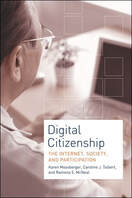
Digital Citizenship
The Internet, Society, and Participation By Karen Mossberger, Caroline J. Tolbert and Ramona S. McNeal This analysis of how the ability to participate in society online affects political and economic opportunity finds that technology use matters in wages and income and civic participation and voting. 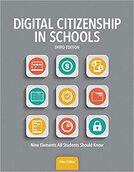
Digital Citizenship in Schools: Nine Elements All Students Should Know
By, Mike Ribble published by the International Society for Technology in Education, identifies digital literacy as one of nine key elements of digital citizenship:
Common Sense Education - New Digital Citizenship Lessons Are Here!
|
Future Literacies: Crash Course Media Literacy #12We’ve seen and discussed the ways in which the rapid pace of technological change has affected the media literacy landscape, and it’s clear that change isn’t slowing down. How will those changes affect the future of media literacy? How can we make the skills we’ve discussed over this course transferable to future media & technology?
Students sing along with the Digital Citizens about the importance of media balance, learning how to be mindful of their tech use and how it makes them feel. Saying Goodbye to Technology (Media Balance & Well-Being). Students learn to pause, breathe, and finish up whenever they have to say good-bye to technology.
Here are 5 Hands-On Digital Citizenship Activities for the Classroom. Digital Citizenship Activity for Public Service. Persuasive Ads. Scaling Digital Literacy for Increased Parent Involvement. Creative Writing Digital Citizenship Activity. Make Musical Connections.
In my classroom, I use two essential approaches in the digital citizenship ... During the year, I touch on each of the points above with lessons and class ...
Teaching Summary · Getting Started - 15 minutes · Activity: Digital Citizens - 30 minutes · Wrap-up - 10 minutes · Assessment - 5 minutes.
Feb 9, 2020 — Here are 9 resources to help teach digital citizenship and media literacy. ... about it whenever technology is part of their lesson plan. In other ...
Ithaca College - Project Look Sharp
|
Evaluating Online Tools & Media for Classroom Use

Web search can be a remarkable tool for students, and a bit of instruction in how to search for academic sources will help your students become critical thinkers and independent learners.
With the materials on this site, you can help your students become skilled searchers- whether they're just starting out with search, or ready for more advanced training.
With the materials on this site, you can help your students become skilled searchers- whether they're just starting out with search, or ready for more advanced training.
Help your students become better searchers
|
Lesson Plans & Activities
Download lesson plans to develop your students' search literacy skills. Browse lesson plans |
Power Searching
Improve your search skills and learn advanced tips with online lessons and activities. Start now |
A Google a Day Challenges
Put your students' search skills to the test with these trivia challenges. Browse challenges |
Live Trainings
Join us for live search trainings or watch past trainings from search experts here at Google. Start training |
How to Use Google Reverse Image Search to Fact Check ImagesA quick demo of how Google's reverse image search tool can be used to fact check and research images.
|
By Ed Latham. Adult educators, especially part-time teachers, are often frustrated that there are so many digital tools and resources available ...
courses and services; and educational Web sites that offer teachers, parents, and students a range of ... relevant evaluation tools. this guide examines a ... What are the most effective combinations of media and methods in the online learning.
Use these strategies to help middle and high school students identify relevance, ... Digital scaffolds such as those embedded in this Online Inquiry Tool check ... opportunities can be lost because of behavior in social media, so developing ...
|
Other Image Search Resources:
TinEye

TinEye is a reverse image search engine. Search by image: Give it an image and it will tell you where the image appears on the web.
Wikipedia?
"Free Knowledge for one and all" "Wikipedia, at last free knowledge for all"
Oct 9, 2008
|
Wikipedia is not a reliable source for citations elsewhere on Wikipedia. Because it can be edited by anyone at any time, any information it contains at a particular time could be vandalism, a work in progress, or just plain wrong. ... Wikipedia generally uses reliable secondary sources, which vet data from primary sources.
Wikipedia is not a reliable source - Wikipedia Reliability as a source in other contexts — Because Wikipedia cannot be considered a reliable source, the use of Wikipedia is not accepted in many ...
Meet the man behind a third of what's on Wikipedia
Wikipedia now boasts more than 5.7 million articles in English and millions more translated into other languages, all written by online volunteers. Errol Barnett talks to one editor who was named among Time Magazine’s most influential people on the internet.
Meet The People Who Devote Their Time To Editing Wikipedia [INSIGHTS]
In an age of misinformation, these “Wikipedians” are the heroes the internet needs....
Using Wikipedia: Crash Course Navigating Digital Information #5
Let's talk about Wikipedia. Wikipedia is often maligned by teachers and twitter trolls alike as an unreliable source. And yes, it does sometimes have major errors and omissions, but Wikipedia is also the Internet's largest general reference work and as such an incredibly powerful tool. Today we'll discuss using Wikipedia for good - to help us get a birds-eye view of content, better evaluate information with lateral reading, and find trustworthy primary sources. Special thanks to our partners from MediaWise who helped create this series: The Poynter Institute The Stanford History Education Group (sheg.stanford.edu) Follow MediaWise and their fact-checking work across social: https://www.instagram.com/mediawise/ https://www.youtube.com/mediawise https://twitter.com/mediawise https://www.facebook.com/MediaWise/
MediaWise is supported by Google. |
In The News:Wikipedia at 20: last gasp of an internet vision, or a beacon to ...
That side project, Wikipedia, now has more than 55m articles across 300 ... overview of breaking news, such as the attack on the US Capitol. The Economist: Online encyclopedias Happy Birthday, Wikipedia
WIKIPEDIA IS CLEAR on the matter: Wikipedia is not a reliable source. Yet on this particular question, few people seem to agree with the ... CNET: Wikipedia is at war over the coronavirus lab leak theory
"The source of the virus sits within the field, so [it] should also be covered." Not all Wikipedia's editors agree. Some argue that the origin ... Who Gets To Be Notable And Who Doesn't: Gender Bias On Wiki
On Wikipedia, gender inequality is hiding in plain sight. ... have to be written about in books, covered in the news, featured in galleries. Wikipedia co-founder: I no longer trust the website I created
Freddie Sayers meets Larry Sanger. Listen to the podcast version: https://shows.acast.com/lockdowntv-wi...
Read the full article here: https://unherd.com/thepost/wikipedia-... Chances are, if you’ve ever been on the internet, you’ve visited Wikipedia. It is the world’s fifth largest website, pulling in an estimated 6.1 billion followers per month and serves as a cheat sheet for almost any topic in the world. So great is the online encyclopedia's influence is so great that it is the biggest and “most read reference work in history”, with as many as 56 million editions. But the truth about this supposedly neutral purveyor of information is a little more complex. Historically, Wikipedia has been written and monitored by a community of volunteers who collaborated and contested competing claims with one another. In the words of Wikipedia’s co-founder, Larry Sanger who spoke to Freddie Sayers on LockdownTV, these volunteers would “battle it out”. This battle of ideas on Wikipedia’s platform formed a crucial part of the encyclopedia's commitment to neutrality, which according to Sanger, was abandoned after 2009. In the years since, on issues ranging from Covid to Joe Biden, it has become increasingly partisan, primarily espousing an establishment viewpoint that increasingly represents "propaganda". This, says Sanger, is why he left the site in 2007, describing it as “broken beyond repair”. Wikipedia Is Badly Biased - Larry Sanger Blog
By Larry Sanger. The Uncyclopedia logo. Maybe more appropriate for Wikipedia itself now. Wikipedia's “NPOV” is dead. Wikipedia co-founder: I no longer trust the website I created ...
Historically, Wikipedia has been written and monitored by a community of volunteers who collaborated and contested competing claims with one ... Slate: Wikipedia’s War on the Daily Mail
Volunteer Wikipedia editors argued that the Daily Mail had made a habit of ... unreliable” source that should not be used on Wikipedia. 'Nobody should trust Wikipedia,' co-founder Larry Sanger ...
Larry Sanger, 52, co-founded Wikipedia in 2001 alongside Jimmy Wales, said the crowdsourcing project has betrayed its original mission by ... |
Media Literacy
Lesson Plans & Resources
Media Literacy Organizations
NAMLE
|
CML (Center for Media Literacy)A pioneer in its field, the Center for Media Literacy (CML) is an educational organization that provides leadership, public education, professional development and evidence-based educational resources nationally and internationally. Dedicated to promoting and supporting media literacy education as a framework for accessing, analyzing, evaluating, creating and participating with media content, CML works to help citizens, especially the young, develop critical thinking and media production skills needed to live fully in the 21st century media culture. The ultimate goal is to make wise choices possible.
|
|
KQED-FM is an NPR-member radio station owned by Northern California Public Broadcasting in San Francisco, California.
|
CPBS - KQED EducationKQED Education provides educators and young people multimedia content, experiential activities, and professional tools to create learning environments of the 21st century by promoting civic engagement, creative expression, and problem solving using digital media.
PBS Media Literacy Educator CertificationDemonstrate your expertise in teaching PreK-12 students to think critically about their roles as media consumers and creators. PBS and KQED have teamed up to offer a set of free media literacy micro-credentials that provide the pathway to earning certification as a PBS Certified Media Literacy Educator.
|
Media Education Lab
|
Media Literacy NowMedia Literacy Now is the leading national advocacy organization for media literacy education policy.
|
NewseumA Center for First Amendment Media Literacy
Our educational approach helps citizens get connected, informed and engaged at all stages of life. Browse 1,000s of Lesson Plans, Digital Artifacts, Videos, Historical Events, Interactives and Other EDTools.
|

